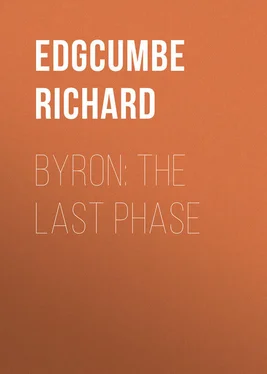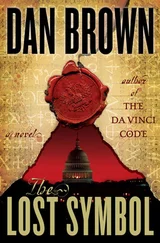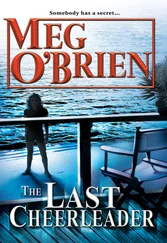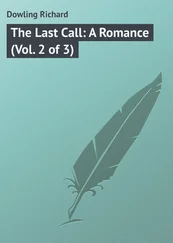Richard Edgcumbe - Byron - The Last Phase
Здесь есть возможность читать онлайн «Richard Edgcumbe - Byron - The Last Phase» — ознакомительный отрывок электронной книги совершенно бесплатно, а после прочтения отрывка купить полную версию. В некоторых случаях можно слушать аудио, скачать через торрент в формате fb2 и присутствует краткое содержание. Жанр: literature_19, Поэзия, foreign_antique, foreign_prose, foreign_poetry, Биографии и Мемуары, на английском языке. Описание произведения, (предисловие) а так же отзывы посетителей доступны на портале библиотеки ЛибКат.
- Название:Byron: The Last Phase
- Автор:
- Жанр:
- Год:неизвестен
- ISBN:нет данных
- Рейтинг книги:3 / 5. Голосов: 1
-
Избранное:Добавить в избранное
- Отзывы:
-
Ваша оценка:
- 60
- 1
- 2
- 3
- 4
- 5
Byron: The Last Phase: краткое содержание, описание и аннотация
Предлагаем к чтению аннотацию, описание, краткое содержание или предисловие (зависит от того, что написал сам автор книги «Byron: The Last Phase»). Если вы не нашли необходимую информацию о книге — напишите в комментариях, мы постараемся отыскать её.
Byron: The Last Phase — читать онлайн ознакомительный отрывок
Ниже представлен текст книги, разбитый по страницам. Система сохранения места последней прочитанной страницы, позволяет с удобством читать онлайн бесплатно книгу «Byron: The Last Phase», без необходимости каждый раз заново искать на чём Вы остановились. Поставьте закладку, и сможете в любой момент перейти на страницу, на которой закончили чтение.
Интервал:
Закладка:
‘The excursion to the “School of Homer” (why so called nobody seemed to know) was to be made by water; and the party of the preceding day, except the lady, embarked in an elegant country boat with four rowers, and sundry packages and jars of eatables and drinkables. As soon as we were seated under the awning – Lord Byron in the centre seat, with his face to the stern – Trelawny took charge of the tiller. The other passengers being seated on the side, the usual small flying general conversation began. Lord Byron seemed in a mood calculated to make the company think he meant something more formal than ordinary talk. Of course there could not be anything said in the nature of a dialogue, which, to be honest, was the kind of conversation that I had at heart. He began by informing us that he had just been reading, with renewed pleasure, David Hume’s Essays. He considered Hume to be by far the most profound thinker and clearest reasoner of the many philosophers and metaphysicians of the last century. “There is,” said he, “no refuting him, and for simplicity and clearness of style he is unmatched, and is utterly unanswerable.” He referred particularly to the Essay on Miracles. It was remarked to him, that it had nevertheless been specifically answered, and, some people thought, refuted, by a Presbyterian divine, Dr. Campbell of Aberdeen. I could not hear whether his lordship knew of the author, but the remark did not affect his opinion; it merely turned the conversation to Aberdeen and “poor John Scott,” the most promising and most unfortunate literary man of the day, whom he knew well, and who, said he, knew him (Lord Byron) as a schoolboy. Scotland, Walter Scott (or, as his lordship always called him, “Watty”), the “Waverley Novels,” the “Rejected Addresses,” and the English aristocracy (which he reviled most bitterly), were the prominent objects of nearly an hour’s conversation. It was varied, towards the end of the voyage, in this original fashion: “But come, gentlemen, we must have some inspiration. Here, Tita, l’Hippocrena!”
‘This brought from the bows of the boat a huge Venetian gondolier, with a musket slung diagonally across his back, a stone jar of two gallons of what turned out to be English gin, another porous one of water, and a quart pitcher, into which the gondolier poured the spirit, and laid the whole, with two or three large tumblers, at the feet of his expectant lord, who quickly uncorked the jar, and began to pour its contents into the smaller vessel.
‘“Now, gentlemen, drink deep, or taste not the Pierian spring; it is the true poetic source. I’m a rogue if I have drunk to-day. Come” (handing tumblers round to us), “this is the way;” and he nearly half filled a tumbler, and then poured from the height of his arm out of the water-jar, till the tumbler sparkled in the sun like soda-water, and drunk it off while effervescing, glorious gin-swizzle, a most tempting beverage, of which everyone on board took his share, munching after it a biscuit out of a huge tin case of them. This certainly exhilarated us, till we landed within some fifty or sixty yards of the house to which we were directed.
‘On our way we learned that the Regent of the island – that is, the native Governor, as Captain Knox was the protecting Power’s Governor (Viceroy over the King!) – had forwarded the materials of a substantial feast to the occupant (his brother); for the nobili Inglesi , who were to honour his premises. In mentioning this act of the Regent to Lord Byron, his remark was a repetition of the satirical line in the imitation address of the poet Fitzgerald, “God bless the Regent!” and as I mentioned the relationship to our approaching host, he added, with a laugh, “and the Duke of York!”
‘On entering the mansion, we were received by the whole family, commencing with the mother of the Princes – a venerable lady of at least seventy, dressed in pure Greek costume, to whom Lord Byron went up with some formality, and, with a slight bend of the knee, took her hand, and kissed it reverently. We then moved into the adjoining sala , or saloon, where there was a profusion of English comestibles, in the shape of cold sirloin of beef, fowls, ham, etc., to which we did such honour as a sea appetite generally produces. It was rather distressing that not one of the entertainers touched any of these luxuries, it being the Greek Second or Panagia Lent, but fed entirely on some cold fish fried in oil, and green salad, of which last Lord Byron, in adherence to his rule of accustoming himself to eat anything eatable, partook, though with an obvious effort – as well as of the various wines that were on the table, particularly Ithaca, which is exactly port as made and drunk in the country of its growth.
‘I was not antiquary enough to know to what object of antiquity our visit was made, but I saw Lord Byron in earnest conversation with a very antique old Greek monk in full clerical habit. He was a Bishop, sitting oil a stone of the ruined wall close by, and he turned out to be the Esprit fort mentioned in a note at the end of the second canto of “Childe Harold” – a freethinker, at least a freespeaker, when he called the sacrifice of the Maso una Coglioneria .
‘When we embarked on our return to Vathi, Lord Byron seemed moody and sullen, but brightened up as he saw a ripple on the water, a mast and sail raised in the cutter, and Trelawny seated in the stern with the tiller in hand. In a few minutes we were scudding, gunwale under, in a position infinitely more beautiful than agreeable to landsmen, and Lord Byron obviously enjoying the not improbable idea of a swim for life. His motions, as he sat, tended to increase the impulse of the breeze, and tended also to sway the boat to leeward. “I don’t know,” he said, “if you all swim, gentlemen; but if you do, you will have fifty fathoms of blue water to support you; and if you do not, you will have it over you. But as you may not all be prepared, starboard, Trelawny – bring her up. There! she is trim; and now let us have a glass of grog after the gale. Tita, i fiaschi! ” This was followed by a reproduction of the gin-and-water jars, and a round of the immortal swizzle. To my very great surprise, it was new to the company that the liquor which they were enjoying was the product of Scotland, in the shape of what is called “low-wines,” or semi-distilled whisky – chiefly from the distillery of mine ancient friend, James Haig of Lochrin; but the communication seemed to gratify the noble drinker, and led to the recitation by one of the company, in pure lowland Scotch, of Burns’s Petition to the House of Commons in behalf of the national liquor. The last stanza, beginning very much pleased Lord Byron, who said that he too was more than half a Scotchman.
‘“Scotland, my auld respeckit mither,”
‘The conversation again turned on the “Waverley Novels,” and on this occasion Lord Byron spoke of “The Bride of Lammermoor,” and cited the passage where the mother of the cooper’s wife tells her husband (the cooper) that she “kent naething aboot what he might do to his wife; but the deil a finger shall ye lay on my dochter, and that ye may foond upon .” Shortly afterwards, the conversation having turned upon poetry, his lordship mentioned the famous ode on the death of Sir John Moore as the finest piece of poetry in any language. He recited some lines of it. One of the company, with more presumption than wisdom, took him up, as his memory seemed to lag, by filling in the line:
‘“And he looked like a warrior taking his rest,
With his martial cloak around him.”
‘Lord Byron, with a look at the interloper that spoke as if death were in it, and no death was sufficiently cruel for him, shouted, “He lay – he lay like a warrior, not he looked .” The pretender was struck dumb, but, with reference to his lordship’s laudation of the piece, he ventured half to whisper that the “Gladiator” was superior to it, as it is to any poetical picture ever painted in words. The reply was a benign look, and a flattering recognition, by a little applausive tapping of his tobacco-box on the board on which he sat.
Читать дальшеИнтервал:
Закладка:
Похожие книги на «Byron: The Last Phase»
Представляем Вашему вниманию похожие книги на «Byron: The Last Phase» списком для выбора. Мы отобрали схожую по названию и смыслу литературу в надежде предоставить читателям больше вариантов отыскать новые, интересные, ещё непрочитанные произведения.
Обсуждение, отзывы о книге «Byron: The Last Phase» и просто собственные мнения читателей. Оставьте ваши комментарии, напишите, что Вы думаете о произведении, его смысле или главных героях. Укажите что конкретно понравилось, а что нет, и почему Вы так считаете.












